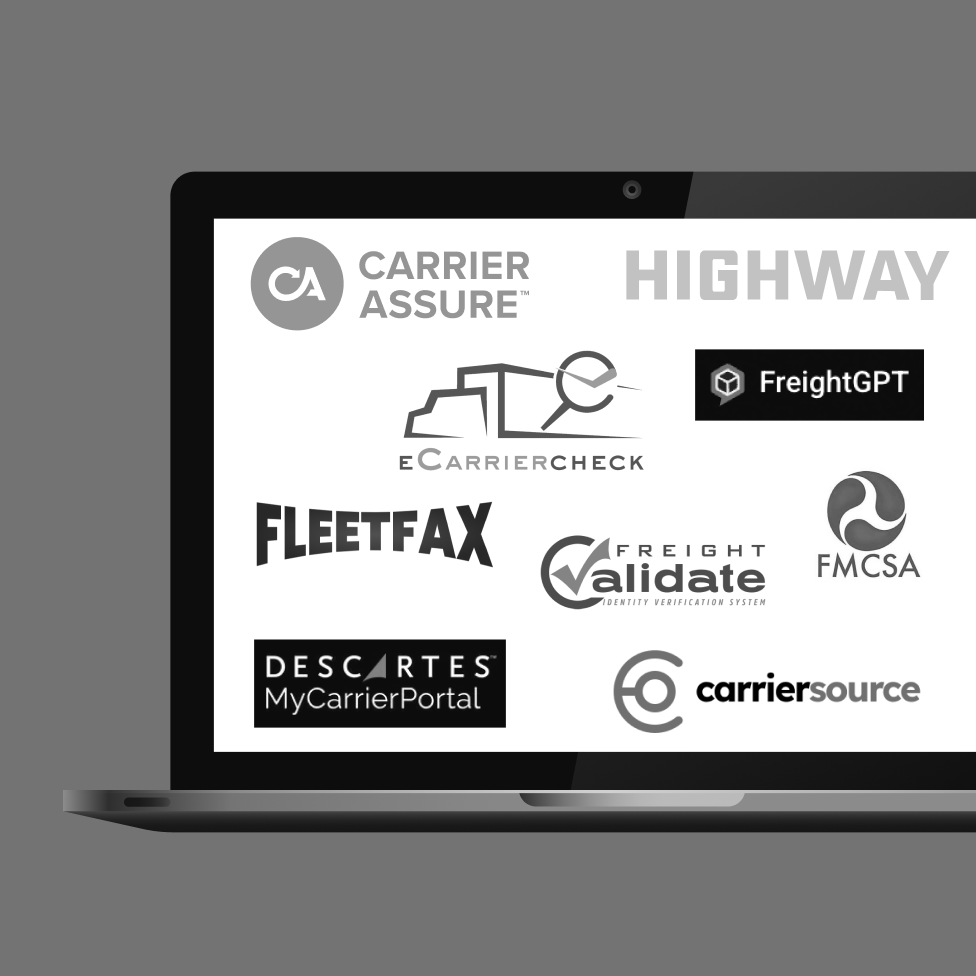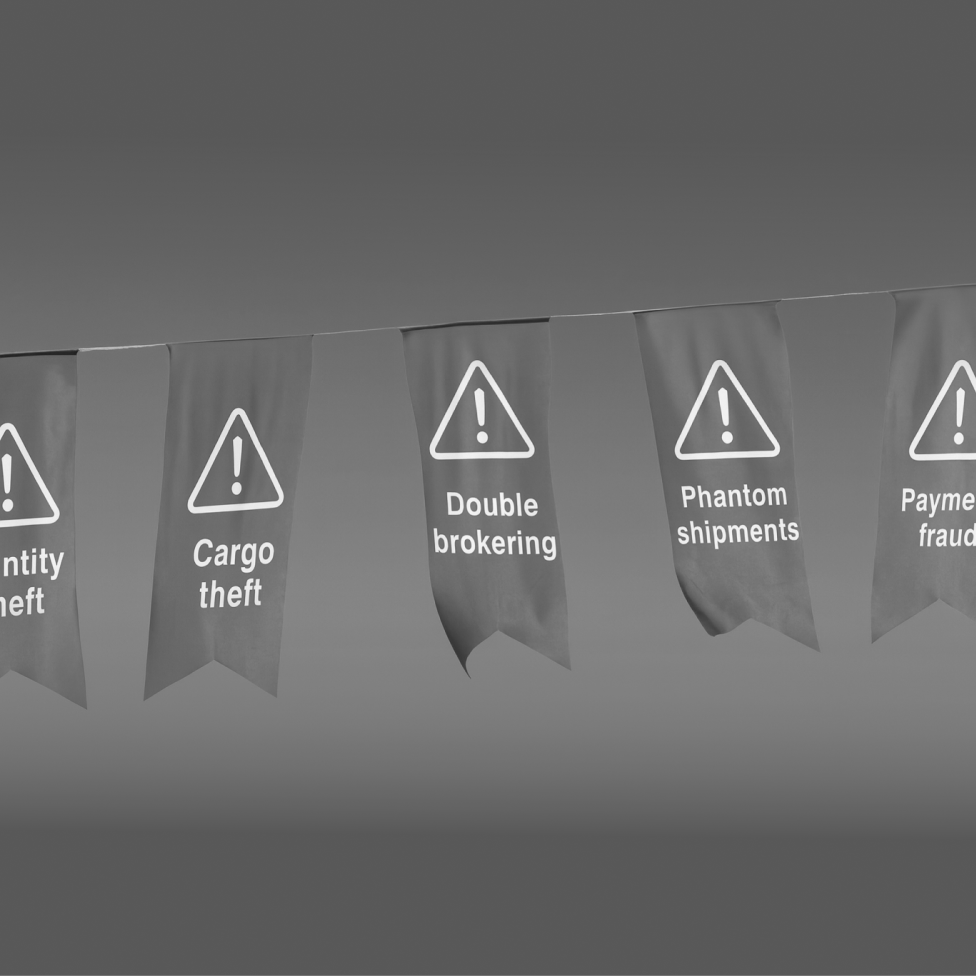A freight brokerage rises and falls on its relationships, with sensitive data flowing between shippers, brokers, and carriers. It is the job of a freight brokerage to tactfully manage and protect this data coming in from both sides. But, as the transportation and logistics industry increasingly depends on technology to manage their businesses, this has become harder to do.
Cyberattacks across trucking, logistics, freight factoring, and freight forwarding are now happening more frequently and with added complexity. Not only are these attacks costly, but they can compromise the trust of your customers. According to data from IBM, the transportation sector was the seventh most-attacked industry in 2021, accounting for 4% of all cyberattacks within the top ten industries. When combined with the fact that 60 percent of small- to mid-sized companies will close after a cyberattack, it’s essential that small- and mid-sized freight brokers give special attention to cybersecurity practices.
There is good news, though. With the right systems, employee training, and technology partners in place, freight brokers can prevent cyberattacks, grow their business, and become trusted partners that focus on data security for their customers.

What is a Cyberattack?
A cyberattack is any attempt by a foreign party to damage or destroy a computer network or system. There are a variety of ways cybercriminals or hackers can launch an attack, but ransomware ranks as the No. 1 cyber threat to freight brokers because of the level of access hackers can gain. During a ransomware attack, hackers encrypt sensitive data and demand payment to free it. Brokers are usually held hostage by hackers that hope the company will get desperate enough to pay the ransom to regain control of their data.
Because successful ransomware attacks can disrupt a company’s entire IT network and cause costly downtime, many brokerages find it cheaper to pay the hackers. This has further reinforced the idea that they are an easy target.
Other common cyberattacks include:
- Phishing. Phishing is one of the more common methods hackers use to gain access to company data. This often comes in the form of an email to unsuspecting employees. The emails almost always look legitimate and can fool even the most careful employee.
- Password attacks. These attacks refer to a hacker trying to steal a user’s password. They were one of the most common causes of data breaches in 2020, with companies reporting that 81% of data breaches were caused by compromised credentials.
- Man-in-the-middle. In this method of cyberattack, hackers insert themselves into a two-party transaction. From there they can filter and steal data.
- Distributed Denial of Service (DDoS). In this cyberattack, attackers flood a server with internet traffic to prevent legitimate users from accessing connecting services or websites.
All cyberattacks will look different, but understanding some of the most common ones can help you prepare and minimize the damage. Suspicious network activity such as abnormal access patterns, database activities, file changes, or unexpected network activity are red flags freight brokers should be looking for to identify and suppress a cybersecurity threat.

Is Your Freight Brokerage at Risk of a Cyberattack?
Freight brokers are responsible for their customers’ most sensitive information, often including pricing and payment information. This puts even small to mid-sized companies at risk of a cyberattack and the financial losses that accompany them.
Unfortunately, the freight payment process between freight brokers and trucking companies has increasingly become a common target for hackers who assume these companies lack the sophistication and resources to protect themselves from cyber threats—and that assumption is not always wrong.
As digitization for freight brokers has revolutionized the industry over the last decade, many brokerages and carriers have not always kept up with the best practices in their payment solutions and other technologies to improve online safety. The sector’s prominent role in the consumer economy also adds to its vulnerability. Because it is so interconnected, one company’s cyberattack has the potential to bring the movement of freight to a complete stop. This has direct consequences for the entire supply chain down to the consumer level.

How to Protect Your Freight Brokerage from a Cyberattack
Protecting your brokerage from a cyberattack doesn’t have to be hard or complicated. Here are several freight brokerage best practices to help you prepare for the cybersecurity threats that may lie ahead:
Create a Strong Password
Cybercriminals often try to access user accounts by using combinations of names, milestone dates (anniversaries, birthdays), and dictionary words. Brokers’ software systems should not only require user passwords but complex passwords. The Denim Payments platform, for example, requires all customers to have strong passwords that are complex for humans or computers to guess. These simple safeguards significantly reduce the effectiveness of password-related attacks.
Denim also utilizes mandatory password lockouts. We have implemented a mechanism that locks user accounts after 10 invalid password attempts. This measure helps protect customers from "brute force" attacks.
Train Your Employees
Employee education is arguably the most important step in improving cybersecurity. Training should be conducted during the onboarding process for all new employees and revisited regularly throughout the year for current employees. Annual training sessions keep employees updated on best practices and ensure they know how to spot cybersecurity red flags, such as suspicious phishing emails.
We regularly conduct cybersecurity training here at Denim. We provide employees with the knowledge required to identify and appropriately respond to cybersecurity threats. In addition, we regularly work with independent security teams to conduct penetration testing exercises that involve simulated cyberattacks designed to identify any potential vulnerabilities in our applications that cybercriminals may exploit.
Choose the Right Freight Factoring Company
Protecting proprietary, personal, and customer data is essential to the success of your brokerage. Choosing the wrong technology partners has the potential to open your business up to cybersecurity risks. This is especially true when selecting a freight factoring company. While freight factoring is an efficient way for brokers to avoid lengthy delays in payment on invoices, brokers must ensure their freight factoring company is making all efforts to secure their sensitive data.
For our cloud-based freight factoring company, cybersecurity analytics are always top of mind at Denim Payments, starting with limiting the amount of Personally Identifiable Information (PII) we collect for our customers. Any customer data stored via disk is securely encrypted to ensure protection in the event of a data breach, lost or stolen devices, or data leakage.
At Denim, we also offer our partners cybersecurity assurance through a variety of built-in features, such as secure data transmission and DDoS threat mitigation.
Protect Your Data to Grow Your Freight Brokerage
Protecting your brokerage's cybersecurity just makes good business sense. Freight brokers can set themselves apart and grow their brokerage by ensuring all personal and customer data is protected. And while choosing the right freight factoring company is a great place to start, it is also the responsibility of each broker to ensure they have the right measures and training in place.
Ready to learn more? See how Denim's payment automation software can help protect your brokerage from falling victim to a cyberattack. Please reach out to us with any questions or concerns.

Denim’s automated solutions streamline your back-office operations. Explore our solutions to see how Denim can help your business scale efficiently.
There's a better way







